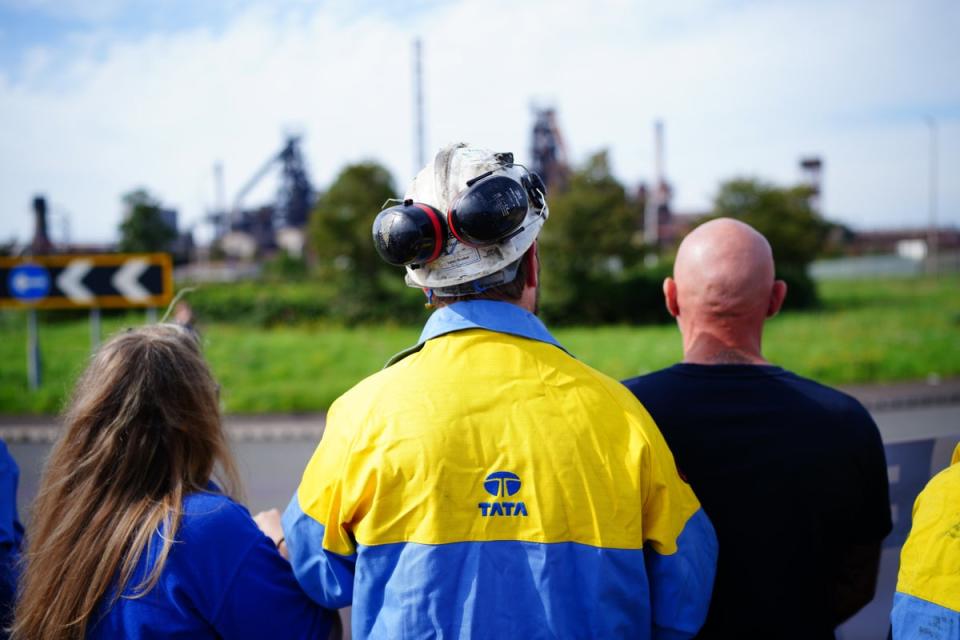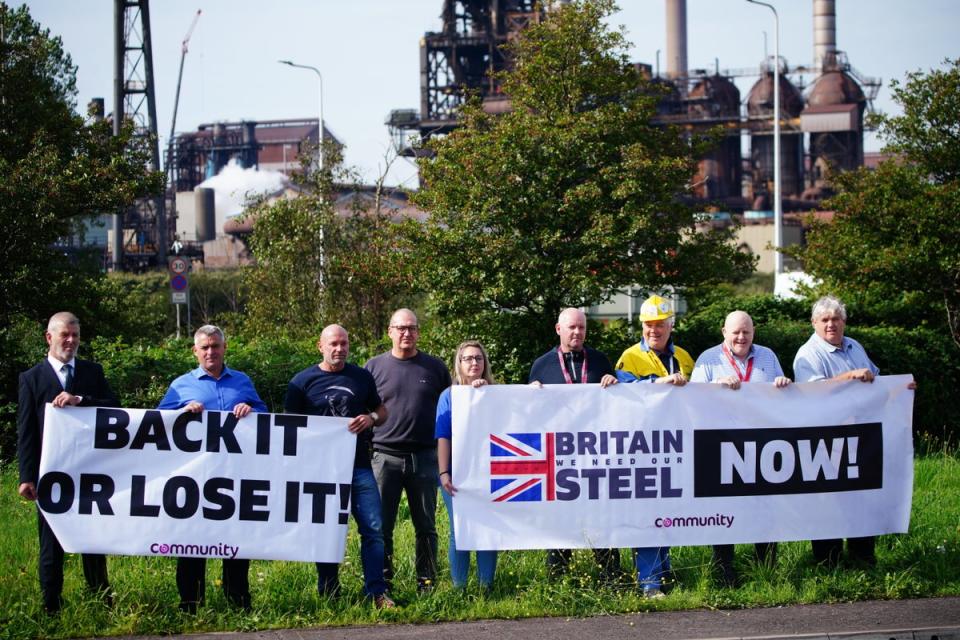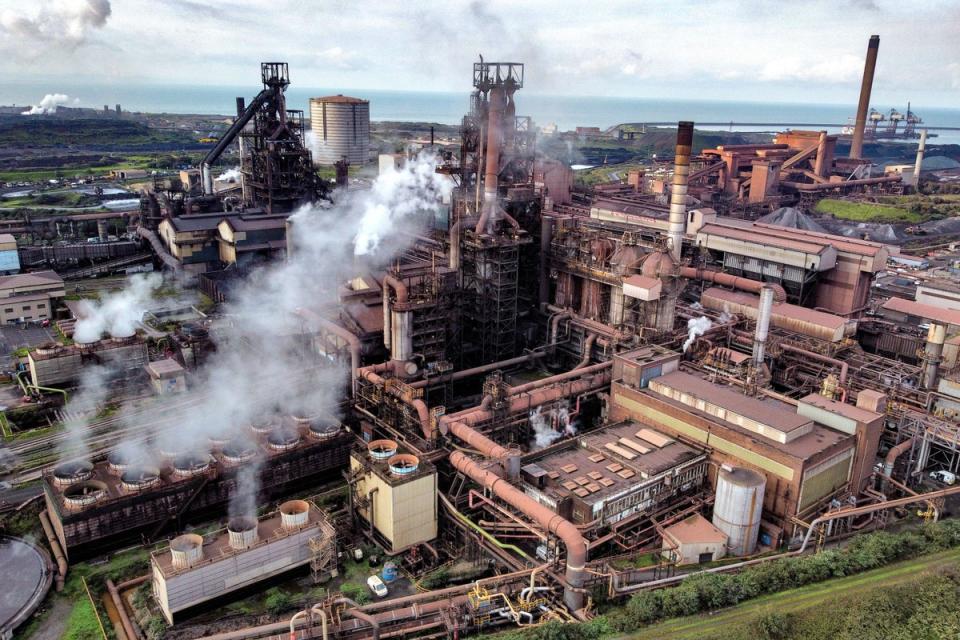Up to 2,800 jobs at risk as Tata Steel ‘to shut down Port Talbot blast furnaces’
Steel giant Tata is to press ahead with plans to close blast furnaces at its plant in Port Talbot, south Wales, putting up to 2,800 jobs at risk, sources have said.
Unions were meeting the company on Thursday after presenting alternative proposals aimed at saving jobs in Port Talbot.
Sources said Tata rejected the plan and was pressing ahead with proposals for a greener form of steelmaking to cut emissions and stem financial losses.
The steelworkers’ union Community had urged Tata to reconsider its plans to move Port Talbot to an electric arc furnace-only site.
The so-called multi-union plan was put forward by the GMB and Community unions under which Tata Steel could have transitioned Port Talbot toward greener steelmaking over a longer timeline.
Under the plan, there would have been no compulsory redundancies and Britain’s domestic steel supply would have been protected - avoiding reliance on imports from countries such as India while the electric arc furnace is built.
Community assistant general secretary Alasdair McDiarmid said: “We met Tata today and they responded formally to the multi-union plan.
“We continue to believe the multi-union plan is the best strategy for Tata Steel UK and can avoid compulsory redundancies, protect our steelmaking production capacity, and safeguard the future of Port Talbot and the downstream plants.”
Stephen Kinnock, Labour MP for Aberavon, home of the Port Talbot steelworks, said Tata was following “the Conservative business model of managed decline for British steelmaking”.
“[It] will cause the job losses of 3,000 hard-working men and women, each of whom have dedicated their lives to an industry which underpins Britain’s automotive industry, railways, defence sector, consumer goods, construction, wind turbines and so much more,” he said.
Mr Kinnock urged Tata and the government to reconsider the multi-union plan, adding: “Global demand for steel is actually growing, but by pursuing a narrow electric arc furnace-only model, Tata Steel will be unable to seize the commercial opportunities of the future, while at the same time leaving Britain more dependent on imported steel from countries whose governments won’t always have Britain’s best interests at heart.”
The Port Talbot plant is the largest steelworks in the UK and currently employs 4,000 of the company’s 8,000-strong UK workforce. The move would see 75 per cent of workers lose their jobs.
Unions will now consult their members on how to respond to job losses, with industrial action not being ruled out.
Sources said Tata accepted a union plea to keep the hot strip mill open over a transition period.
The move would see Tata Steel Europe, owned by the Indian conglomerate Tata, ending more than a century of steel manufacturing at the plant.

A Tata Steel spokesperson said ahead of the meeting: “We have recently announced a joint agreement between Tata Steel and the UK government for a proposal to invest in [a] state-of-the art electric arc furnace steelmaking in Port Talbot.
“We are committed to meaningful information sharing and consultation with our trade union partners about the plan to develop sustainable steelmaking in the UK and to find solutions for concerns they may have.
“While those discussions are ongoing it would not be appropriate to comment further.”
Welsh Liberal Democrat leader Jane Dodds said: “I am deeply disappointed to hear that Tata Steel will be closing their remaining blast furnaces in the UK, something which could have a devastating impact on communities across the country, particularly in Port Talbot, where the local economy is reliant on the nearby steel plant.
“The government, through their inability to support investment into UK steel, has failed towns like Port Talbot across the country.
“If the government was willing to implement a real and sustainable industrial strategy that protected jobs whilst simultaneously supporting the transition to low carbon sectors, we wouldn’t find ourselves in this mess.
“But now we are here, on the verge of witnessing the destruction of Port Talbot.

“The prime minister and his cabinet will never know what it’s like for the thousands of workers at risk of losing their jobs, they will never know the constant worrying and anxiety that comes with the prospect of losing one’s livelihood.”



